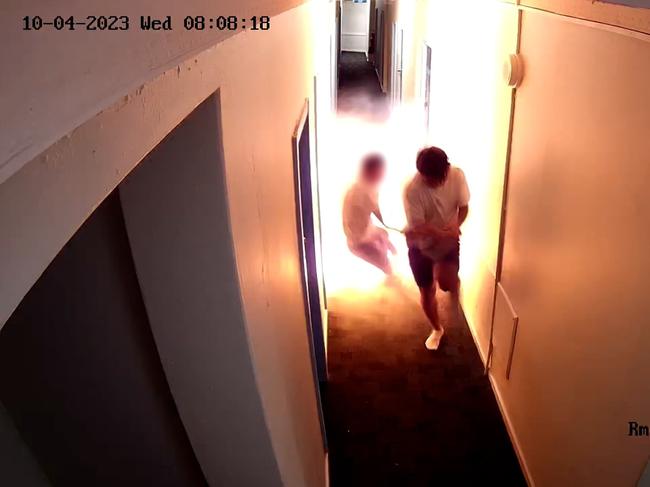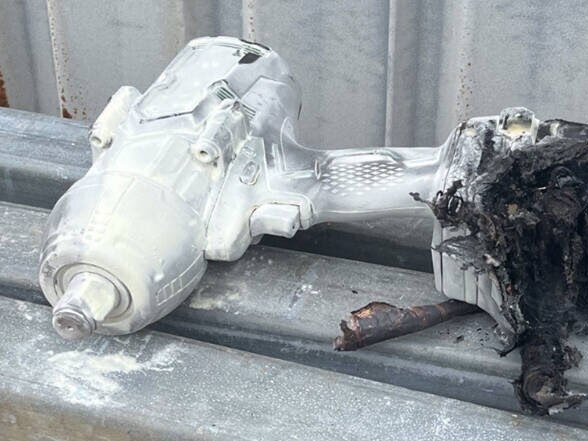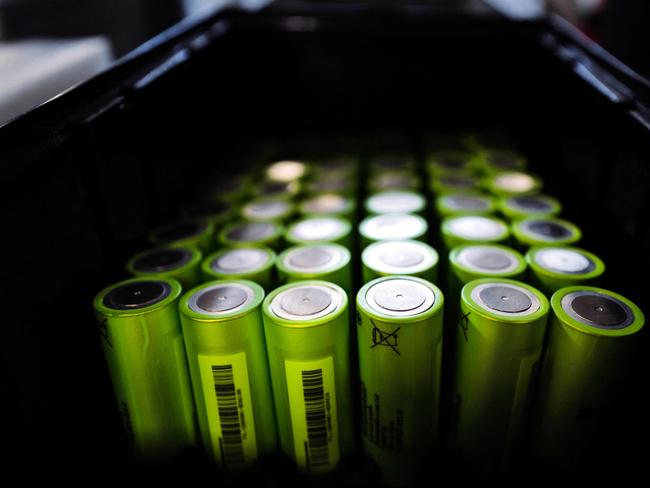ACCC issues lithium-ion battery warning following hostel fire
Australia’s consumer watchdog has warned about fire hazards from lithium-ion batteries, which can explode and cause serious injuries. Here’s how to stay safe.
Gadgets
Don't miss out on the headlines from Gadgets. Followed categories will be added to My News.
Australia’s consumer watchdog has issued a warning about potential fire hazards from lithium-ion batteries, which can explode from overheating and cause serious injuries including burns.
Rechargeable lithium-ion batteries are contained in common household items, including most mobile phones, laptops, tablets, e-scooters, e-bikes and power tools.
Incidents are rare but appear to be increasing, the Australian Competition and Consumer Commission said, but are serious when they occur.
Mobile phones left charging overnight on a combustible surface such as carpet, which can catch fire if the device overheats, can pose a serious risk.
Have you had an incident with lithium-ion batteries? Tell us in the comments field below.

One Australian is believed to have died in a lithium-ion battery fire and the ACCC has received 231 product safety reports relating to lithium-ion batteries in the past five years
The warning comes after two backpackers were caught in a fireball on Wednesday when a lithium-ion battery exploded inside a Sydney hostel.

Fire and Rescue NSW said the blaze at the Darlinghurst hostel — which left one person injured and forced 70 to be evacuated — is suspected to have been sparked by a faulty e-bike battery left on charge.
Here are the hidden risks of lithium-ion batteries and what you need to look out for in order to stay safe.
WHAT ARE THE RISKS?
Lithium-ion batteries can overheat or explode if they are used, charged or disposed of incorrectly or if they are damaged, and fires caused by the batteries can be dangerous and difficult to extinguish.
“We are concerned by increasing reports of lithium-ion battery fires resulting in property damage and serious injuries, including burns, chemical exposure and smoke inhalation,” ACCC Deputy Chair Catriona Lowe said.

WHAT ABOUT MY MOBILE PHONE?
Leaving devices such as mobiles and laptops to charge overnight on combustible surfaces such as sofas or carpets, where they could catch fire, is a major hazard, the ACCC warned.
The consumer watchdog also warned that people need to ensure that the charger they are using is suitable for the product being charged.
HOW DO I CHARGE MY ITEMS SAFELY?
It is vital that consumers avoid using batteries, products or chargers that are overheating or showing signs of failure such as swelling, leaking or venting gas.
People also need to allow time for batteries to cool after use and before charging

“Consumers should avoid mixing and matching chargers, unplug products when fully charged and charge batteries in a cool, dry place and away from combustible materials like beds, lounges or carpet,” Ms Lowe said.
“Check your lithium-ion batteries for overheating signs of swelling, leaking or venting gas and immediately stop using your product if these signs are present.”

HOW DO I DISPOSE OF ITEMS CONTAINING LITHIUM-ION BATTERIES SAFELY?
By 2026, it is estimated that a household will have on average 33 devices powered by lithium-ion batteries.
As an increasing number of these products and batteries are disposed of, it’s critical there is adequate infrastructure for safe disposal.
Lithium-ion batteries are more likely to catch fire when exposed to heat and moisture, or crushed – common conditions in garbage trucks and household waste facilities.
“Consumers should keep lithium-ion batteries out of household rubbish and check recyclemate.com.au and bcycle.com.au for information about safe disposal,” Ms Lowe said.
“We recommend that government and industry continue to develop solutions to ensure lithium-ion batteries are safely designed and can be sustainably disposed.”

WHAT SHOULD THE GOVERNMENT DO?
The ACCC expects suppliers to recall, replace and refund products that pose unacceptable safety risks to consumers, and also recommended state and territory governments create an electrical regulatory framework and establish consistent requirements for the testing, labelling, transportation and storage of lithium-ion batteries.
“Some state and territory electrical safety regulators don’t have the power to regulate extra low voltage products, many of which contain lithium-ion batteries,” Ms Lowe said.
HOW MANY PRODUCT RECALLS HAVE THERE BEEN?
Since 2017, the ACCC has received 231 product safety reports linked to lithium-ion batteries and has been notified of 23 supplier-initiated product recalls, with 20 recalls due to fire risk from overheating or short-circuiting.
LG Energy Solution Australia is recalling almost 17,000 home solar batteries in Australia because they may overheat and catch fire.
Further information is on the Product Safety Australia website.
WHO DO I REPORT AN INCIDENT TO?
Consumers are encouraged to report safety incidents (including near misses) to the supplier involved and concerns about unsafe products to the ACCC at the Product Safety Australia website.
More Coverage
Originally published as ACCC issues lithium-ion battery warning following hostel fire





